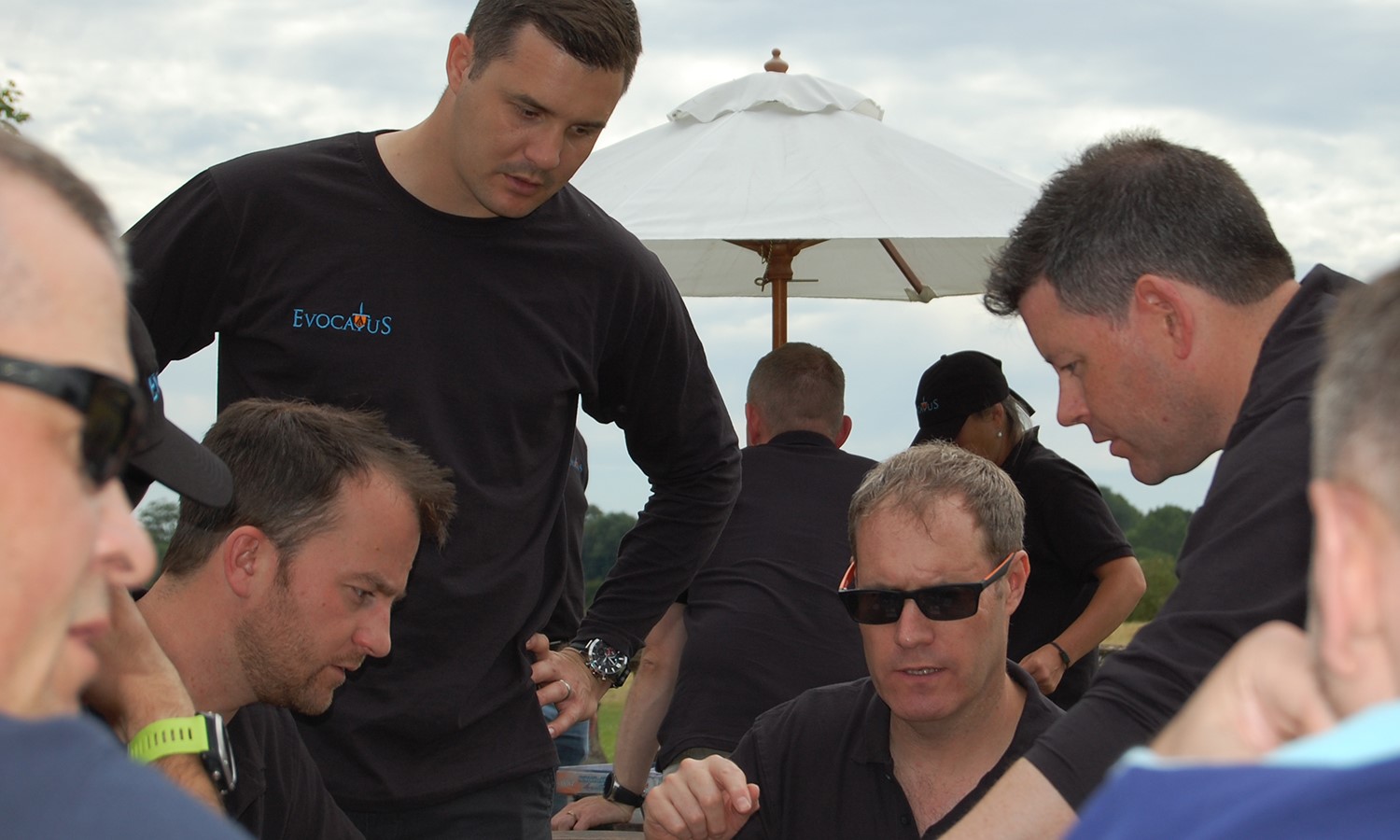Crisis games are an effective business tool that companies and organisations will primarily use for risk management, but if done well, they should also deliver real benefit in terms of team building. Using detailed and engaging scenario games to understand risks and how to manage and react to them can also deliver unexpected benefits, preparing your team not just to cope with emergencies but also to work more effectively during the routine of everyday.
Regardless of the level of sophistication you choose for your crisis game, participants will have the opportunity to develop and practice their communication skills, organisational skills and their decision making; most importantly, they will be doing this with their colleagues, learning about one another’s reaction to stressful situations. Although Evocatus is not a specialist in team-building as a primary objective, we are well aware of how effective our exercises can be at bringing individuals together and building teams.
 Each crisis game we deliver is designed and developed to help achieve specific business outcomes, usually to support risk management, decision making or to explore and explain ideas. This may be limited to a simple table-top discussion or, depending on the budget, audience and ambition, might require a fully immersive exercise across a wide geographical area, supported by actors, bespoke film content and specialist advisors.
Each crisis game we deliver is designed and developed to help achieve specific business outcomes, usually to support risk management, decision making or to explore and explain ideas. This may be limited to a simple table-top discussion or, depending on the budget, audience and ambition, might require a fully immersive exercise across a wide geographical area, supported by actors, bespoke film content and specialist advisors.
Although there is value in participation and the experience of taking part in a scenario game, this is hugely reinforced by an effective observation and review process, through which lessons can be identified by our team and shared back with those immersed in the game. Through this process, we would normally expect the following additional benefits to be recognised by participants in one of our games:
• Learning To Manage The Impact Of Anticipated Risk
Some members of the team may not normally be involved in the day to day risk management of the business and may not see this as part of their job role; traditionally (like Safety, Health, Environment and Fire) the role of risk management might be assigned to one member of the company and enthusiastically ignored by everyone else. However, by involving everybody in a dynamic game which seeks to explore, understand and manage risk, the whole team is not only empowered but expected to take responsibility for understanding risks and helping to managing the likely impact. By rehearsing and refining extant plans across the business, everybody can be involved and play their part.
• Developing Decision Making Skills (Whilst Under Stress)
Placing teams under appropriate, simulated stress is a great way to help them understand each other and to learn about their relative strengths and weaknesses. By their nature, crisis games are designed around high-impact events, where stress levels will rise and decisions often need to be made under pressure, with an incomplete understanding of the situation. Teams which go through an experience like this will learn and develop, as a team; it’s how military exercises build unit cohesion and trust.
While decisions in business are increasingly supported by automated processes and algorithms, Evocatus understands the importance of emotional responses, innovation and human factors in decision-making. It is these essential ingredients that are used to develop good decision-making skills under pressure, encouraging individuals and teams to learn how to analyse a problem from all perspectives and to then come up with creative solutions.
• Improving Internal Communication
Communication is a crucial factor in every effective business. Achieving success in a crisis game requires clear communication; leaders need to be able to explain the outcomes they want and must be able to listen effectively to those people who have key information or insight to offer. The passage of information up, down and sideways, often across a number of sites, flows faster and more clearly with practice, but getting it right can also build the confidence required for junior members of the team to speak up and the humility required from more senior members of the team to listen. Careful game design and the crafting of exercise injects allows us to shape this, ensuring that the right lessons are learned.
• Helping To Understand And Utilize Strengths
We design our games to be challenging and developmental. We take people out of their comfortable everyday routine and ask them to play games within a challenging and artificially pressurised environment. With an effective After Action Review process, individuals and teams can be coached to recognise what went well and what could have gone better. Although this may only have been during a simulated scenario, there will always be observations for people to take away for self-reflection, should they choose to. Learning about participants’ individual strengths, observed coping techniques and their adaptability will evidently be of use to leaders and managers, but may also boost confidence in individuals, their own abilities and those of their team.
A good risk management strategy should include being ready to react effectively when risks are realised and things go wrong; trying to avoid risk altogether is for bank accounts, not businesses. Our risk management exercises not only prepare teams for dealing with potential challenges, but are opportunities for teams to develop and grow through a simulated experience. If you would like to sharpen up your risk management and also reap the everyday benefits offered by a bespoke crisis game, get in touch with us at Evocatus and let’s start making a plan!
